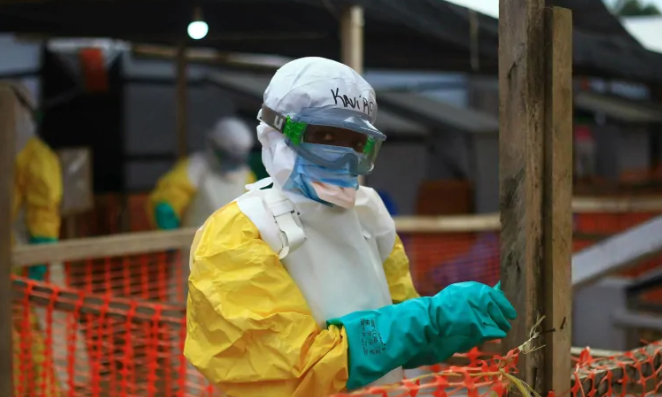
Ebola outbreak complicates measles vaccination campaign in DRC

Health workers in the Democratic Republic of Congo have rolled out a measles campaign vaccination targeting 67,000 children in Ituri, a region hard hit by armed conflict and also the epicenter of the second-deadliest Ebola outbreak on record.
At least 1,981 deaths due to measles have been reported across the DRC in 2019, over two-thirds of them among children below the age of 5.
As of 23 June, nearly 115,000 cases of suspected measles had been reported, far more than the 65,000 recorded in 2018.
Ituri, one of the two provinces (the other is North Kivu) struck by Ebola since the outbreak began nearly a year ago, has recorded over 5,400 cases and 50 deaths.
“The combined threat of Ebola and measles for the thousands of families living in overcrowded and unsanitary displacement camps is unprecedented, we have a small window to prevent a potentially massive loss of life,” said UNICEF DRC Representative Edouard Beigbeder.
The first sites targeted for measles vaccinations are four displacement camps in Bunia and Ituri, which have seen a huge influx of families forcibly uprooted by fighting in recent weeks.
The Ebola outbreak means the measles vaccination campaign must incorporate extra measures to protect against infection and meticulous triage.

DR Congo is currently experiencing the second worst Ebola outbreak in recorded history. More than 1,400 people have died. (Photo by Sally Hayden/SOPA Images/LightRocket via Getty Images)
Health workers will need to wear gowns to prevent contact with blood or other body fluids.
Teams will include an additional health worker who will evaluate and refer suspected Ebola cases, check temperatures and oversee handwashing and other safety measures.
Region affected by insecurity and Ebola
Close to 400,000 people are thought to be internally displaced across Ituri, the vast majority of them women and children.
Many live in about 35 camps scattered throughout the province, in territory that is virtually inaccessible due to insecurity.
Fighting among various armed groups has damaged or destroyed up to half the health facilities and schools in the province.
As of 8 July, there were 2,428 cases of Ebola, with 1,641 deaths. Almost 30 per cent of cases are among children.






